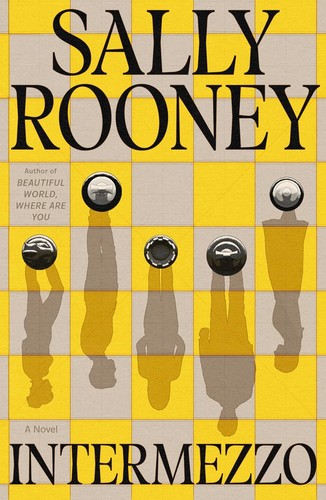Intermezzo

I thoroughly enjoyed Normal People in 2019. I skipped Beautiful World, Where Are You (BWWAY) after some reviews called it more of the same and not quite as good as Normal People. I was intrigued, then, when I heard that Intermezzo was an evolution in her work. Instead of focusing on romantic lovers, the primary relationship that organizes the books are 2 brothers. Peter is the older brother. Ivan is the younger brother. Peter is a successful 32 year old Dublin lawyer. Ivan is a chess prodigy whose career has stalled, taking data analyst gigs in the meantime to fund his playing. Peter has had many romantic relationships with beautiful women, currently dating a pretty 23 year old, but still close friends with longtime girlfriend now ex Sylvia. Ivan has had no romantic relationships, went through an incel period in his late teens, but gets into a relationship with a 36 year old woman Margaret estranged from her alcoholic husband. Peter gets along with people; he knows what to say. Ivan never does.
The book’s chapters alternate their focus on each brother, starting and ending with Peter. Rooney’s style changes for each brother. For Peter’s chapters, the sentences are choppy and often incomplete. Often missing a subject or verb. She writes like people text. Took me a while to settle into the book.
Didn’t seem fair on the young lad. That suit at the funeral.
For Ivan’s chapters, the sentences are long, flowing, and introspective. The style suits the tendency for Ivan’s and Margaret’s thoughts to ramble. The text felt familiar; it wouldn’t be out of place in any other Rooney novel. I enjoyed reading these chapters.
Ivan is standing on his own in the corner, while the men from the chess club move the chairs and tables around.
Either way, there are no quotation marks.
In my review of Normal People, I said that it was difficult to relate to a book about the romantic tension between 2 people when I had never been in a romantic relationship. I did not have a problem relating to the plot and characters of Intermezzo. I could see parts of myself in Peter and Ivan, and not necessarily parts I liked. At times, I had to stop reading because I cringed at something the characters thought, said, or did—because I too had thought, said, or done those things. And I have a brother. Fraternal and familial conflict is something I grasp. Much of the tension between the siblings, aside from Peter’s judgement of Ivan’s relationship with an older woman, is a result of events that happen before the present of the novel. Indeed, the greatest drama here comes from conversations taking place under the pressure of life-changing events in the novel’s prehistory.
The brothers eventually reconcile. They get some happiness in their romantic lives, but their lives remain open problems, full of unanswered questions. But that’s life; we never reach a point which our lives lie before us as a clearly marked open road, never have and never should expect a map to the years ahead1. Whether Ivan settles down with Margaret or Peter can sustain a throuple is left to the posthistory, perhaps to be told in a sequel someday. Intermezzo, as the title suggests, is sandwiched in the fluid, messy, glorious middle.
-
“Pacific Distances”. After Henry - Joan Didion. ↩